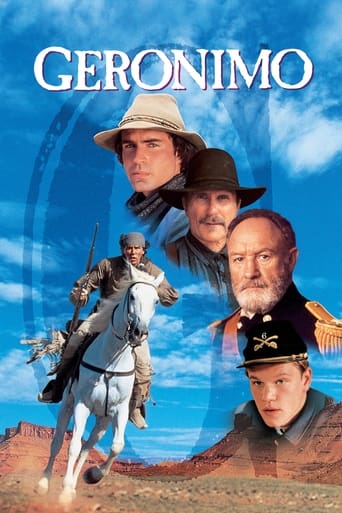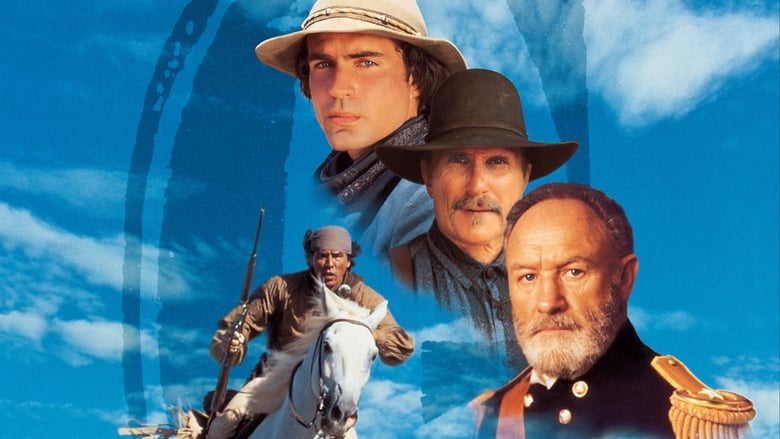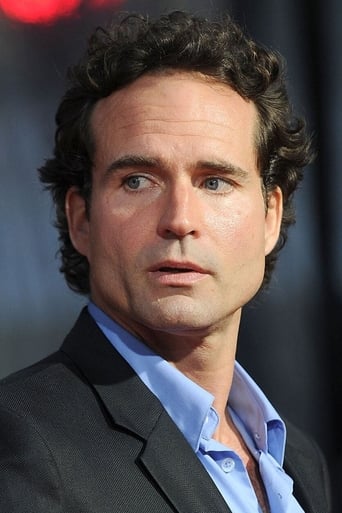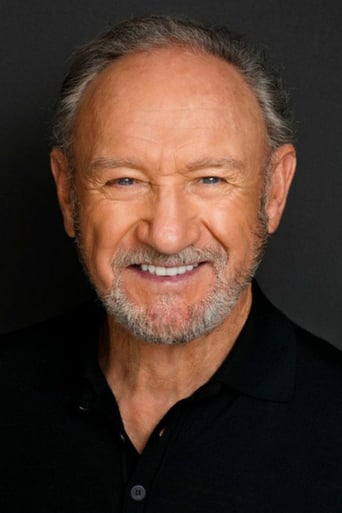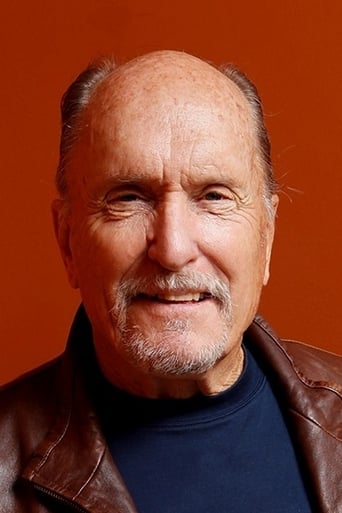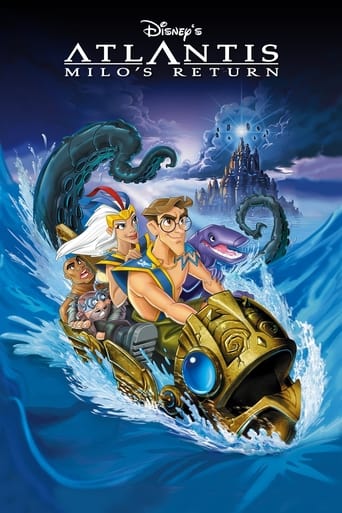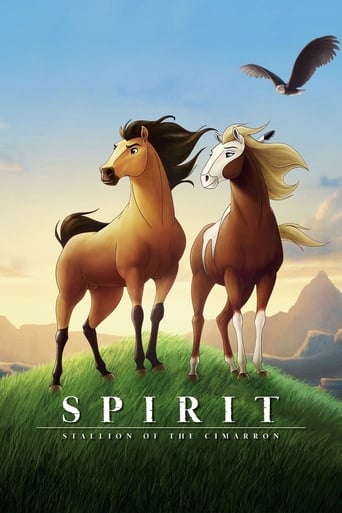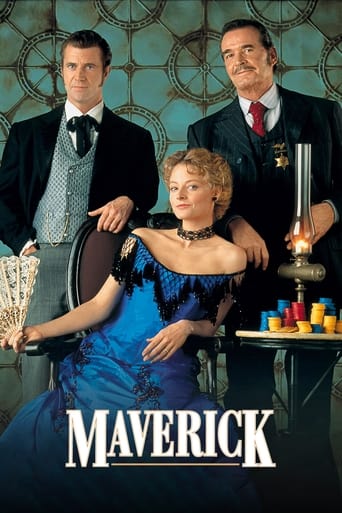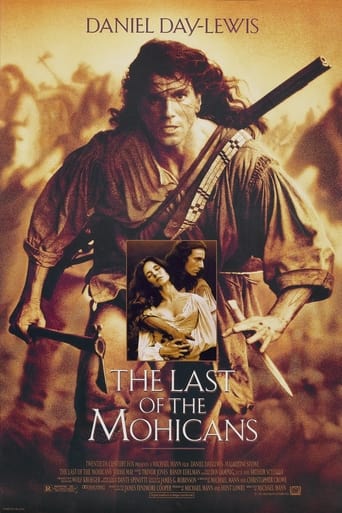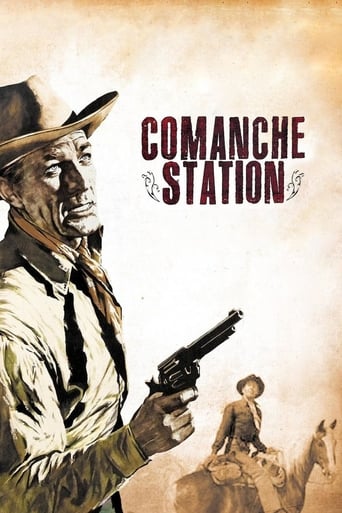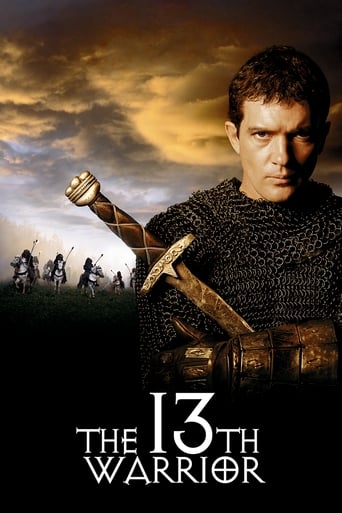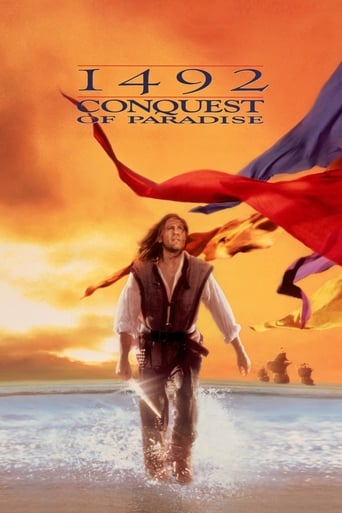Geronimo: An American Legend (1993)
The Apache Indians have reluctantly agreed to settle on a US Government approved reservation. Not all the Apaches are able to adapt to the life of corn farmers. One in particular, Geronimo, is restless. Pushed over the edge by broken promises and necessary actions by the government, Geronimo and thirty or so other warriors form an attack team which humiliates the government by evading capture, while reclaiming what is rightfully theirs.
Watch Trailer
Cast
Similar titles
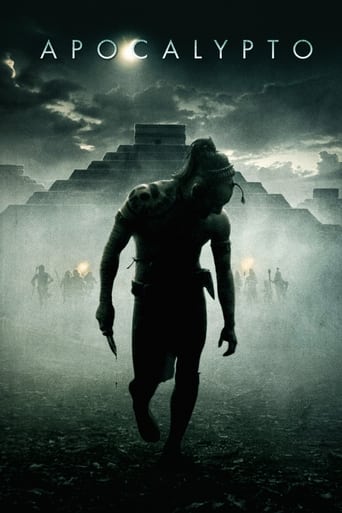

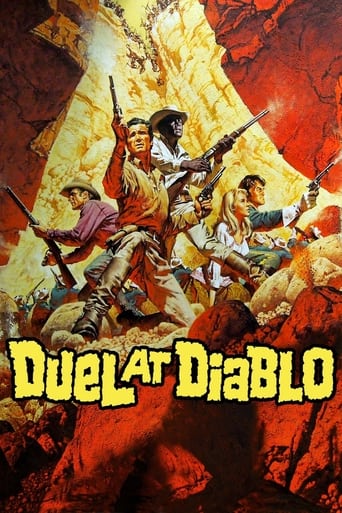
Reviews
Sadly Over-hyped
recommended
Plot so thin, it passes unnoticed.
Disturbing yet enthralling
I'm a huge fan of director Walter Hill. For me he's made some of the most interesting and action packed films that I've enjoyed repeatedly. STREETS OF FIRE, SOUTHERN COMFORT, 48 HOURS, THE WARRIORS and THE LONG RIDERS to name a few. Hill has always made movies that would fall under the category of man's man films. So to learn he was making a movie about the old west and the hunt for Geronimo was not a surprise. As the Indian Wars were coming to an end the Cavalry was rounding up the remnants of the various tribes to escort them to reservations to live on. The story is narrated by young recently graduated military academy Lt. Britton Davis (Matt Damon). It is through his eyes we see the story unfold as well as his glimpse into the land it takes place in. Assigned to help Lt. Charles Gatewood (Jason Patric) escort Geronimo to a meeting with Brig. Gen. George Crook (Gene Hackman) he quickly learns what the west is all about.Learning from Gatewood and from Geronimo as they travel he develops a respect for the Apache warrior and the code of honor that he lives by. Gatewood has seen and done much while out west and is sympathetic to the plight this man is going through even though he follows the orders given to him. It is through these two that most of the story unfolds. Crook promises peace with the Indians as long as they remain on the reservation. He is a man they trust, one that they know will live up to his word. But the Apache were not farmers and it isn't long before one of the medicine men begins claiming visions and encourages war. As the Cavalry attempt to arrest him he is shot and killed resulting in the Apache warriors reacting in kind. The word broken Geronimo and his tribe head out on a rampage against the white man.Crook resigns after the failed attempt at peace and is replaced with Brig. Gen. Nelson Miles (Kevin Tighe) whose methods are not near so accommodating. Gatewood and his men accompanied by their long time tracker Al Sieber (Robert Duvall) hunt down Geronimo as he wreaks havoc across the countryside. But he is not their only problem. Bounty hunters trying to track him down turn out to be even more vicious than the Indian leader leaving bodies in their wake as well. The end result is known historically as Geronimo eventually was caught and surrendered spending the rest of his life in Florida, once more lied to as he was told he would only be there 2 years. One thing that makes this movie stand out as so different from others that discussed the same subject matter is that it doesn't condescend or preach about the topic at hand, the lies told to the Indians by a government intent of moving west. So many movies on the topic prior to this portrayed the Indians as "noble savages" which in itself seems to be an insulting phrase meant to be a compliment. On one hand we had movies made long ago that portrayed them as heartless killers but then after the 60s we had movies where they were the infringed upon owners of the west. Ignored was the fact that for centuries people around the world have been conquered by an invading force who determined their outcome.What made this different than most was the near attempt at genocide of the Native American Indian. And Hill doesn't dwell on this topic in a morose way that says oh poor me. Instead he shows a proud leader who is doing all he can to save his people from extinction even if that word was not in his vocabulary. It isn't until the final moments of the film when we see the Indians loaded in box cars on their way to Florida that one thinks of this. Images of Jews in the same sort of conditions making their way to concentration camps come easily to mind while seeing this.The movie is best because it doesn't take one extreme side or the other. It tells the tale of a vanquished people but never paints either side as wholly right or wrong. For the soldiers they are doing nothing more than following the directives sent to them from Washington. They're not the redneck gun toting soldiers as portrayed in those late 60s/early 70s films determined to do nothing more than "kill an 'injin". They are soldiers, nothing more. And in Gatewood, Crook and Davis we see that they not only learned to do their duty but learned something from the man they were sent to capture.All actors on hand here turn in great performances. Patric once more shows that he was an actor that should have been provided more and better roles that he received. Odds are it was his personal life (if memory serves me correctly) that prevented that which is sad. Hackman. Need I say more? Damon turns in a great performance as a naïve recruit in what is one of his earliest performances. The most wasted actor here is Wes Studi as Geronimo. For a movie with the character's name in the title it felt like he should have been onscreen more than he was. The moments with Studi there shows that we wasn't just a Native American Indian actor but a great actor. Here too we have an actor who has been wasted by Hollywood and should have had more and better opportunities than to just play Indians. The movie looks great in all the images presented with Hill being able to capture the vast openness of the west in golden hues that make you feel the oppressive heat as well as imagining inhaling the dust kicked up from the dirt strewn plains. It's beautiful and deadly at the same time. The costumes here are well done as well, a little thought of part of a movie but necessary in period films. When done wrong everything looks new and polished in the worst settings but here it was done perfectly with a well-worn look to clothing items making them seem real. My only issue with the movie was the sound. It seems movie makers are determined to shoot dialogue scenes with the lowest volume possible and action sequences as loud as can be. And having them occur back to back leads a viewer to strain to hear what's being said only to be blown out of their seats seconds later. Thank goodness for subtitles.When released the movie did decent numbers but nothing stupendous. That might be because at the same time another film based on Geronimo came out from Ted Turner that ran on TV. It might also have been the title which Hill is said to have been unhappy with preferring THE GERONIMO WAR to this one, a title that would have made more sense. The good news is that fans can now own a solid copy of the film and those that have never seen it have an opportunity to do so.Twilight Time. I never get tired of saying this. Twilight Time is releasing the film in the best possible format and presentation possible in 1080p hi-def blu-ray format. Perhaps the only disappointing thing about this release is that the extras are limited to an isolated music track and the original theatrical trailer. As with all of their releases this one is limited to just 3,000 copies so if interested pick one up soon.
I love these kind of movies, I had a vague recollection of it even existing and I caught it one lazy Sunday afternoon. Great performances by Wes Studi, the underrated Jason Patric, and the always good Hackman and Duval. I see most of the negative reviews seem to question the historical accuracy, while they may be right, I feel the movie does an excellent job of telling the story of Western civilization's colonizing the state's and the conflicted and differing feeling they had to the treatment of the native American Indians. But mostly it is just a well acted and well told story that is very enjoyable to watch on a quiet afternoon.
"I don't feel we did wrong in taking this great country away from them. There were great numbers of people who needed new land, and the Indians were selfishly trying to keep it for themselves." – John Wayne (interview) "Two thousand years of history, could not be wiped away so easily." – Bob Marley "The Indians must conform to "the white man's ways," peaceably if they will, forcibly if they must. They must adjust themselves to their environment, and conform their mode of living substantially to our civilization. This civilization may not be the best possible, but it is the best the Indians can get. They cannot escape it, and must either conform to it or be crushed by it. The tribal relations should be broken up, socialism destroyed, and the family and the autonomy of the individual substituted." - Commissioner Thomas MorganAfter demonizing Native American Indians for several decades, Hollywood suddenly began releasing a slew of revisionist westerns in the late 60s and early 70s. Enter films like "Buffalo Bill", "Ulzana's Raid", "A Man Called Horse" and "Soldier Blue", all of which forced their audiences to empathise with subjugated natives whilst portraying the "white man" as genocidal brutes bent on conquest. Even John Ford, one-time king of racist caricatures, tried to make amends with "Cheyenne Autumn", his apology for past pictures.Meanwhile, on the other side of the Atlantic, French, Italian and British film-makers were treading similar ground. With the dismantling of the British Empire, British directors began releasing a spread of anti Colonial war films, whilst European directors like Gavras, Wertmuller and Pontecorvo protested the treatment of Algerians and the aggressions of the French Empire.With the battle for history won, films in the early 90s then began to treat this subject in a much more elegiac fashion. Films like "Dances With Wolves", "Thunderheart, "Squanto", "Geronimo" and "The Last of the Mohicans" serve up romantic myths, treating Native Americans with a mixture of reverence, nostalgia and melancholy.Released at the end of this wave, Walter Hill's "Geronimo" focuses on the "Geronimo Campaign", a period of history between 1885 and 1886 in which five thousand US cavalry men attempted to hunt and kill a group of Apache Indians. As is typical of these films, the US Cavalry is portrayed as an aggressive invader whilst the Indians are treated as a band of unfairly persecuted freedom fighters. With the Apaches placed in reservations (ie, concentration camps), caged in trains like Holocaust victims and betrayed by fellow Indians seduced by the false promises of white men, the film is implicitly critical of a certain brand of Colonialism.It's all familiar stuff, very superficially drawn, but the film nevertheless differentiates itself from revisionist westerns in several ways. It revokes the cliché of having an enlightened white man shedding his white ways and fighting for the red skins, and instead adopts a tone of total futility. Here, the battle is already lost, the natives already defeated, and our white hero has long resigned to the horrors of his own actions. Thus, rather than having a white man joining forces with the natives and taking up arms with them against the invaders - your typical "Avatar" narrative - we have a white man attempting to reason with natives such that they accept their own loss. Such that they come to terms with their defeat and stop wasting the lives of their few remaining tribesmen in a futile fight against a technologically and numerically superior foe. Because of this stance, the film plays less like a drama or action fantasy, than a kind of detached tragedy. The weight of a hundred years of history has already determined the outcome of the film, the typical Hollywood fantasies (the flights of fancy where audiences woop with joy as the Indians rebel) rejected entirely. The battle is over. Victory is impossible. History is defeat. This may make for less satisfying viewing, but it gets under your skin.Another bold choice is the resignation of the white officer at the end of the film. Whilst most films in this genre actualise the white man's rage by having him join forces with the enemy and fight against his homeland, the truth is, "doing nothing" is often a much braver act. Violence is not necessarily action. Social structures are run by action, and, contrary to popular opinion, it is violence that makes sure things stay the way they are. Sometimes the truly violent act is to do nothing, a radical refusal often undermining the status quo. Sometimes the only authentic stance to take in dark times is to do nothing, to refuse all commitment (see Renoir's "The Devil Probably"). 7.9/10 - Though directed by Walter Hill, screenwriter John Milius is the real auteur of this picture. Milius' lug-headed politics and passions ooze from every scene, whilst director Walter Hill is simply content to use the tale as an excuse to indulge in his love for his mentors, Peckinpah and Siegel. The film is perhaps better than "Dances With Wolves", but loses points for some middlebrow sermonising. And though critical of US Calvary men and policy makers, the film is nevertheless heavily whitewashed, too fearful to deal with some of the darker truths which occurred during the era. See "Europa Europa".
Walter Hill is a true, seasoned action deliverer. Just look at his stellar films and this is why his one of my favourite directors. Still need to see his highly regarded western "The Long Riders" though. Nevertheless his take on the American legend "Geronimo" was not what I was expecting. It's quite a tone down piece (but not on the drama front), still his professional handling of the bravado action contains that walloping punch we have come to expect (like the sequence in a Mexican bar), but the thoughtfully mediative (if a tad stuffy and not entirely correct) material (by John Milius) and productively detailed characters are what takes centre stage. The outstanding performances led by a cast of Gene Hackman, Robert Duvall, Jason Patric, Wes Studi, Matt Damon, Rodney A. Grant and Kevin Tighe really do cement the humane edge of brave men with moralistic stances. Patric is a revelation in his role, bringing the right idealistic balance and so is a pre-stardom Damon. Duvall brings a solidly noble complexity and Hackman aims up with one of his respectably collected turns. Studi is picture-perfect as Geronimo, who embraces the legend and crafts out a mythical mark. Hill mechanically stages it with a certain ruggedness that's never lost amongst its fetching tailoring, as he does a presentable job covering the sprawling Arizona and Utah foregrounds in getting every little detail of the terrain into the shot. While not flashy, the imagery does linger (as well as some explosive and bloody confrontations) and the scenic cinematography is earthly projected for a genuine look and feel. Ry Cooder (a prolific contributor for Hill) orchestrates a poignantly majestic and spiritually mannered score that enhances its epic framework. A favourably gripping western.
